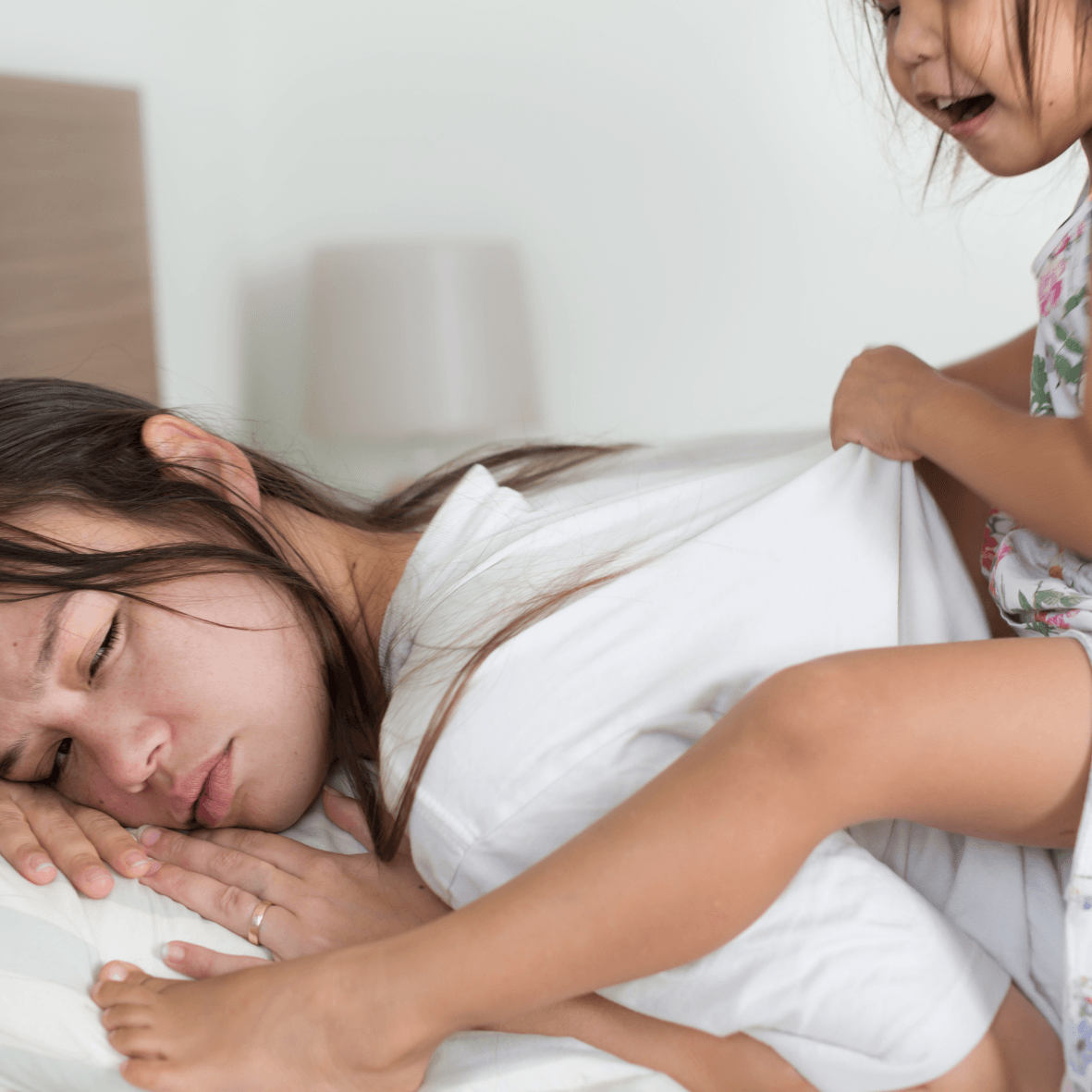
Why Female Libido Declines and How to Reignite It
Sexual desire is one of our greatest pleasures and one of the key components in the creation of life. Such a joyous and vital act, yet for many women, sexual desire reduces significantly as they move through adulthood. Society often points fingers at “hormones” for these unexpected shifts. But is that really the whole story?
At varying degrees throughout a woman's life cycle, and even within her monthly menstrual cycle, libido can fluctuate like a ping pong ball. Yes, hormones undeniably play a role. However, they are only one piece of a much larger puzzle. A woman’s sexuality is intricately woven with emotional safety, caregiving burdens, self-image, autonomy, and more. Understanding this fuller picture is essential for supporting women’s sexual health in a more compassionate and holistic way.
Biochemical and Hormonal Changes Leading to Reduced Libido in Women
• Decreased Estrogen Levels
Estrogen maintains vaginal tissue health, lubrication, and blood flow. As estrogen levels decline, especially during perimenopause and menopause, women may experience vaginal dryness and discomfort during sex, leading to reduced sexual desire. Lower estrogen also impairs nitric oxide synthesis, decreasing genital blood flow and sexual arousal.
• Reduced Testosterone
Although typically associated with men, testosterone also fuels sexual motivation and arousal in women. Levels naturally decline with age, surgical menopause (oophorectomy), and natural menopause. Reduced testosterone diminishes dopaminergic activity in brain regions like the hypothalamus, blunting sexual desire.
• Cortisol and Chronic Stress
Chronic stress elevates cortisol, which suppresses the hypothalamic-pituitary-gonadal (HPG) axis. This hormonal disruption can significantly lower libido. High cortisol disturbs dopamine and serotonin balance, both essential for sexual interest and mood.
• Thyroid Dysfunction
Hypothyroidism, or low thyroid function, is linked with fatigue, depression, and reduced libido. Low thyroid hormones can lower sex hormone-binding globulin (SHBG) and destabilize the availability of sex hormones.
• Neurotransmitter Imbalance
Dopamine enhances sexual desire, while excessive serotonin (common with SSRI use) may suppress it. A healthy balance is crucial for maintaining sexual function and drive.
Psychosocial and Lifestyle-Related Causes of Reduced Libido in Women
• Chronic Stress and Mental Load
Managing work deadlines, caregiving, household tasks, and emotional labor can exhaust the nervous system, leaving little reserve for intimacy.
• Emotional Exhaustion and "Touch Fatigue"
Mothers, especially of young children, often experience constant physical demands, making sexual touch feel overwhelming rather than inviting.
•Lack of Time for Self-Care
Without time to recharge—through rest, exercise, or hobbies—body confidence, emotional vitality, and sexual interest inevitably suffer.

• Relationship Strain or Unresolved Conflict
Emotional disconnection, resentment, or communication breakdowns with a partner reduce emotional safety, which is essential for sexual openness.
• Unacknowledged or Invisible Labor
When women feel unrecognized for their contributions at home or work, it breeds emotional distance and dampens desire.
• Body Image Issues and Self-Perception
Hormonal shifts, aging, and societal beauty pressures can distort self-image, directly impacting confidence and libido.
• Guilt and Prioritizing Others
Women often feel guilty carving out time for themselves, pleasure included. This constant self-neglect chips away at their sexual vitality.
• Poor Sleep Quality
Interrupted or insufficient sleep disrupts hormone production, including estrogen and testosterone, and lowers energy needed for intimacy.
• Overwhelm from Caregiving Roles
Caring for children, aging parents, or ill loved ones can lead to emotional and mental depletion, leaving little space for sexual connection.
• Low Autonomy or Feeling "Trapped"
Feeling boxed in by obligations stifles spontaneity and pleasure—two ingredients critical for sustaining desire.
Recommendations to Help Improve Female Sexuality and Libido

1. Support Hormonal Balance
Engage in strength and resistance training to naturally boost testosterone.
Incorporate healthy fats like avocados, nuts, and olive oil to support hormone synthesis.
Prioritize deep, restorative sleep.
Reduce exposure to xenoestrogens (plastics, conventional cosmetics, pesticides) that disrupt hormone balance.
2. Consider Targeted Supplements (always consult a healthcare provider first)
Maca root: Adaptogen that enhances libido and energy, particularly during perimenopause.
Ashwagandha: Lowers cortisol and supports adrenal health.
Zinc: Critical for testosterone production and sexual function.
DHEA: May benefit libido in postmenopausal women when used under medical supervision.
Omega-3 fatty acids and magnesium: Support mood, stress resilience, and hormone balance.
3. Nourish Mind and Body Through Self-Care
Schedule regular "me time" for activities that reconnect you to pleasure and creativity.
Reclaim body confidence through yoga, gentle movement, or self-massage.
Practice nervous system regulation with breathwork, somatic therapies, or mindfulness exercises.
4. Improve Relationship Dynamics
Redistribute household and emotional labor to ease mental load.
Foster emotional safety through open, non-judgmental communication.
Reintroduce non-sexual touch like hand-holding or cuddling to rebuild connection.
5. Address Emotional and Mental Health
Seek therapeutic support for unresolved emotional barriers like trauma or resentment.
Use journaling to reconnect with inner desires.
Break patterns of guilt and normalize pleasure, rest, and joy.
6. Make Lifestyle Adjustments
Embrace novelty and fun. Try new activities, hobbies, or playful dates with your partner.
Practice presence: Single-task instead of multitasking to cultivate mindfulness.
Limit alcohol, which can dampen libido and hormonal balance over time.
A woman’s sexual vitality is a complex symphony of biology, emotions, relationships, and self-awareness. While hormones certainly influence libido, they do not tell the whole story. Stress, body image, relational dynamics, self-neglect, and societal pressures all play profound roles in shaping a woman’s sexual landscape.
The good news? Libido can often be revived, not just by addressing hormonal shifts, but by nurturing the mind, body, and soul as interconnected parts of a vibrant whole. Small daily practices of self-care, open communication, emotional healing, and lifestyle balance can reignite not only desire, but a deeper connection to pleasure, self-expression, and life itself.
By seeing women’s sexuality through this broader lens, we can support a journey that is not about "fixing" but about reclaiming joy, vitality, and wholeness.
References:
Nappi RE, Palacios S. "Impact of vulvovaginal atrophy on sexual health." Climacteric. 2014;17(1):3–9.
Davis SR, et al. "Testosterone for low libido in postmenopausal women not taking estrogen." N Engl J Med. 2008;359(19):2005–17.
Latest Blog Posts

